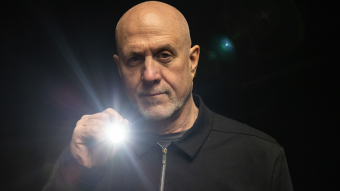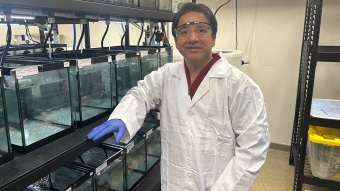
October 2, 2025
Contact: Brian Consiglio, consigliob@missouri.edu
Using pictures to help middle school students visualize science terms could be the key to boosting vocabulary for all students, including those with learning disabilities who struggle with reading and writing.
In a recent study from the University of Missouri, Jamie Day, an assistant professor in the College of Education and Human Development, and her team found that middle school science teachers who incorporated pictures into lessons helped students improve their vocabulary.
“We often hear from science teachers that their students may struggle with reading a science passage,” Day said. “While science teachers are subject matter experts, they may have never received training on how to implement the best literacy practices within their science instruction. That is where we come in as researchers to support them with professional development resources.”
In the study, Day sent professional development PowerPoint slides — packed with pictures and literacy best practices — to 21 middle school science teachers who were teaching students about atoms, elements, molecules and matter.
Best practices included showing students photos when introducing new vocabulary words, reviewing past lessons before moving on, asking true-or-false questions to keep students engaged and using easy-to-understand definitions instead of dictionary jargon.
Day and her team found that after the teachers implemented the multimedia PowerPoint slides into their lessons, students’ vocabulary scores went up. This improvement was seen across all students, including those with learning disabilities.
“It’s not surprising that evidence-based best practices help all students. As a former K-12 teacher, I find that creating an inclusive environment for learning is very rewarding,” Day said. “Teachers have a lot on their plates, and as researchers, anything we can do to support them will have a trickle-down effect in helping students succeed.”
“Impacting student vocabulary outcomes through multimedia professional development” was published in the Journal of Special Education Technology. The study was funded by the U.S. Department of Education.



